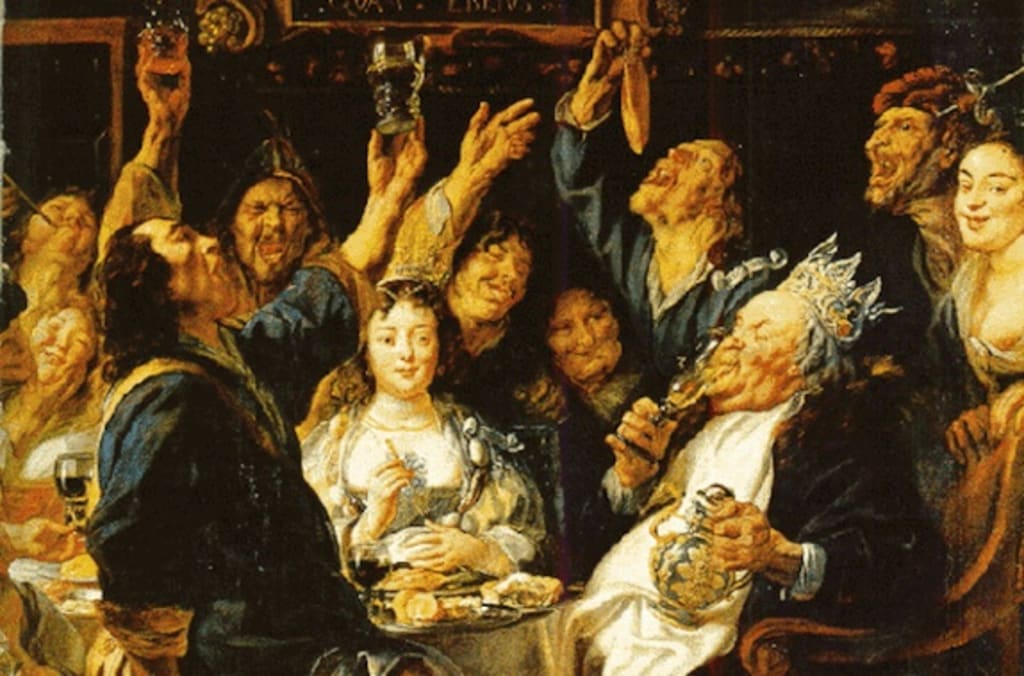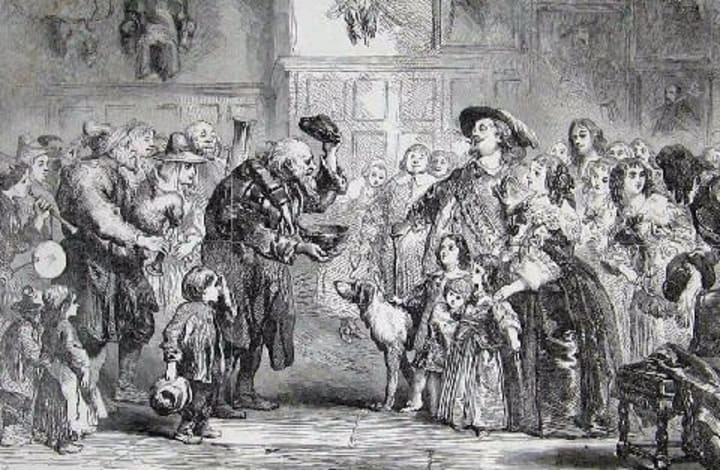Singing for your supper has roots in Christmas
Caroling, wassailing, and performing minstrel have something in common.

There are traditions associated with the holiday season that have been carried out for years. Many times the origins of these yearly rituals are not thought about or perhaps not even understood. There are phrases in Mother Goose tales and children's poetry may not mean much today but had great significance during the time in which they first came to light. This is the case with a children’s nursery rhyme from the 18th century called Little Tommy Tucker which is as follows:
Little Tommy Tucker
Sings for his supper.
What shall we give him?
White bread and butter.
How shall he cut it
Without a knife?
How will he be married
Without a wife?
The term singing for one’s supper was not just in this children’s rhyme but was very real in England around the time this poem was written. Minstrels would play music on street corners and be treated when people dropped money in their hat or a can. During this era the poor would extract money from the rich during the Christmas season by singing carols at the homes of the wealthy, The Christmas Carol “ We wish you a Merry Christmas refers to this practice as it has the following lines.

“ Oh bring us some figgy pudding
Oh bring us some figgy pudding
Oh bring us some figgy pudding and bring it right now.
“We won’t leave until we get some”
We won’t leave until we get some
We won’t leave until we get some so bring it right here.”
I always thought this song was done in jest but according to historians, it actually was a veiled threat. Poor people would sing Christmas songs for the wealthy and expect Figgy pudding as payment or else they might do something bad to them. Many times the rich would give money just to get the beggers away from their door. There were also groups of poor men who would get drunk on beer and ale during the holiday season. It is said that they could become quite nasty. They would go “ a wassailing” which meant they would sing carols at the homes of the rich and actually threaten them to get money.

Whenever I heard the song "Here we come a wassailing among the leaves so green, I assumed that wassailing was the word used for caroling back in days of old but it actually meant someone was singing for their supper because they were hungry and needy. This just goes to show how being impoverished cause desperate people to resort to just about anything. When you think about it singing for your supper was not a good way to live but obviously, the end justified the means. In our modern times we may see someone play a guitar or other instrument on a corner and people gathered around to listen. Many times I’ve seen individuals lay money at the feet of these starving artists.
The rock group Creedance Clearwater Revival had a hit in 1970 with “ Down in the Corner”, which is about 4 boys who play music at supper time and onlookers who enjoy their concert laying down money.
Here is the chorus to the song.
Down on the corner
Out in the street
Willy and the Poor Boys are playin'
Bring a nickel, tap your feet
There are people today who sing carols to raise money for churches or community organizations. I once went caroling as a child with the mother of neighborhood children. We did it in the spirit of the season and did not expect nor receive anything. Caroling is not as popular now and with the coronavirus it's probably not a good idea. There are agencies and faith communities who help the poor with food, clothing, and shelter, so they don't need to sing for their supper anymore as their only means of getting food and or money. Even so, the next time you see a starving artist, consider listening to their music, taping your feet and laying your money down to help them.
About the Creator
Cheryl E Preston
Cheryl is a widow who enjoys writing about current events, soap spoilers and baby boomer nostalgia. Tips are greatly appreciated.






Comments
There are no comments for this story
Be the first to respond and start the conversation.